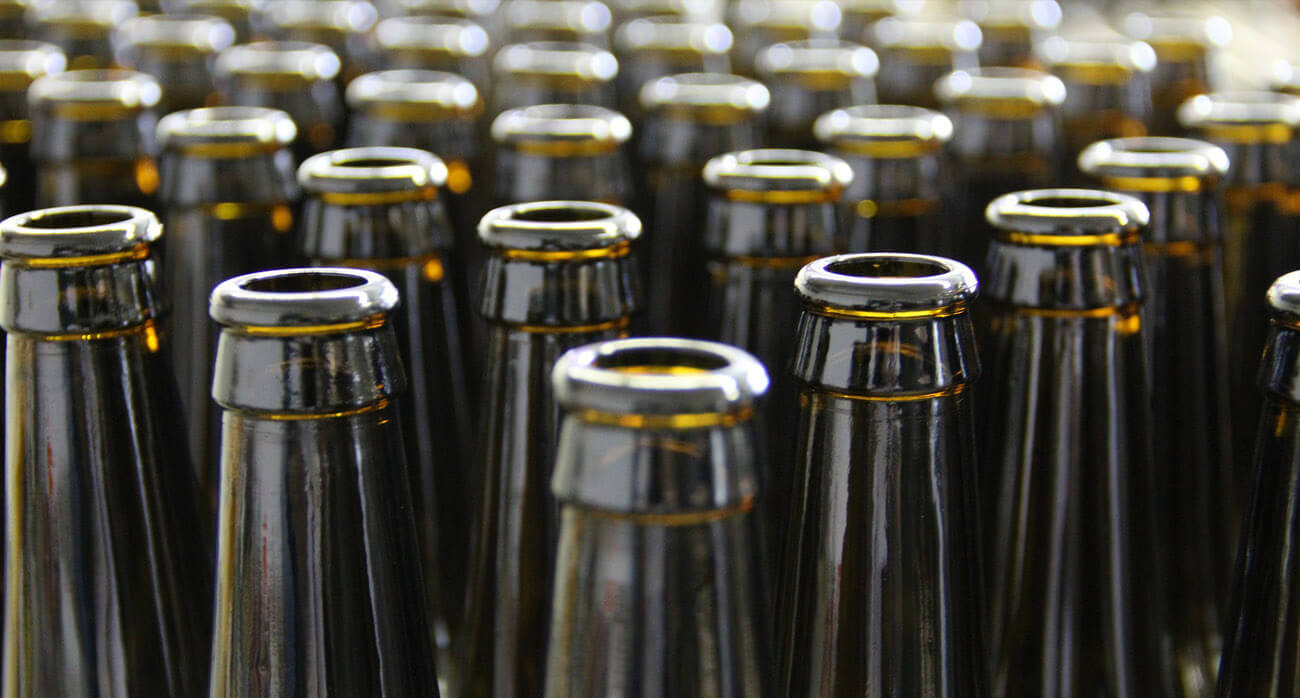
10 Sep 4 Lies You’ve Been Told About Skunked Beer
What is a Skunked Beer?
You’ve heard of it, even if it was by a different term. But what is a skunked beer? Skunked beer is what happens when your beer’s improperly stored. It gets an unappealing, musty flavor. It’s bro science 101: You can’t take a beer from iced down to warm and back without skunking it, or so we’ve been told.
When it comes to enjoying a refreshing beer, nothing is quite as off-putting as that unmistakable skunky smell. But what exactly is a skunked beer? Is it safe to drink? Can you still get a buzz from skunked beer? In this article, we’re diving deep into the world of skunked beer to uncover its causes, effects, and debunk some common myths.
What is Skunked Beer Anyways?
Skunked beer occurs due to a compound called 3-methyl-2-butene-1-thiol, commonly known as MBT. Simply put, this compound forms when the hops in beer are exposed to UV light. Hops are responsible for the bitterness and aroma in beer, but when they’re hit with UV rays, they break down and create MBT, leading to that telltale skunky scent.
Here’s the deal – if you’re dead set on avoiding that skunk stench, kegs and cans are your trusty sidekicks. They’re like the superheroes of the beer world, virtually invincible against skunking. Now, if bottles are your jam, keep your eyes peeled for the dark knights of the beer realm – beers snuggled up in deep, dark brown or even black bottles. It’s like they’re donning beer armor, shielding your brew from the treacherous light.
Lie #1 Cold/Hot/Cold
Taking a beer from cold to warm and back to cold skunks beer. This is something that was pounded into my head from an early age. Well folks, this isn’t true at all. Light is the enemy, not temperature! To be specific UV Rays are the issue. Now if you are taking your beer from boiling to frozen and back, yeah you might change the flavor, so still handle your brew with care. But this isn’t what causes skunked beer.
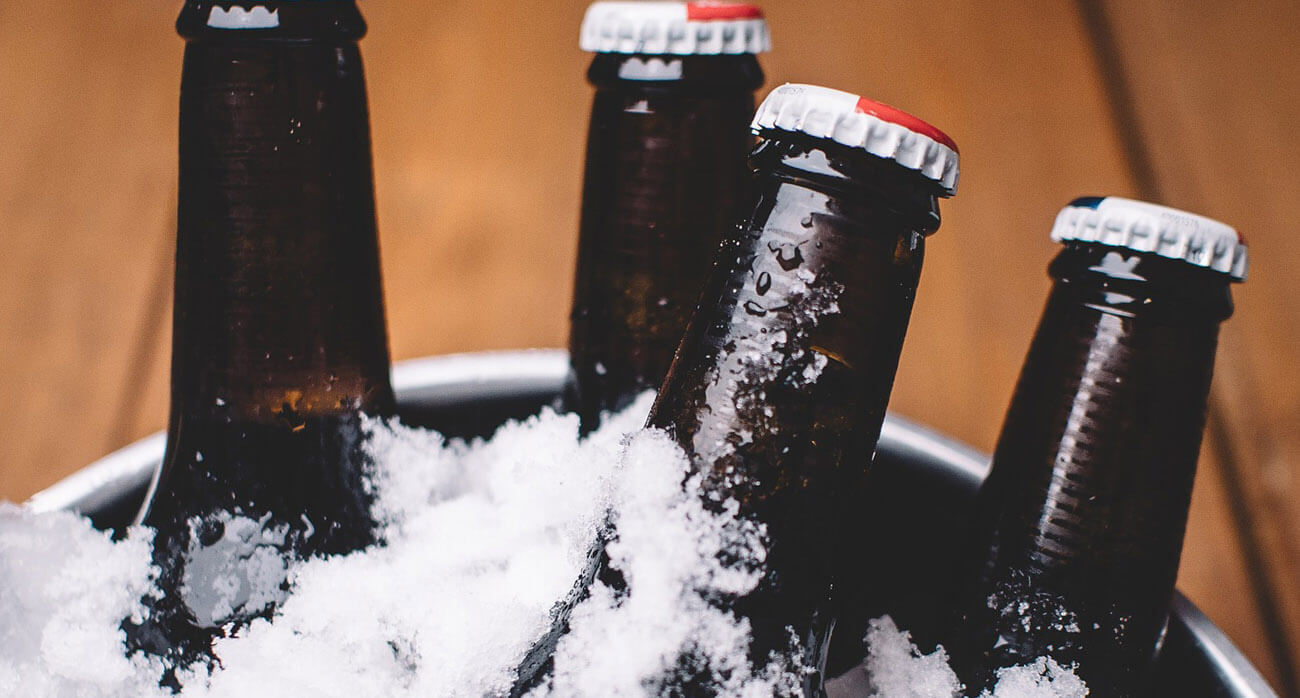
Lie #2 It’s Just Bad Beer
Beer is alive, much like a vegetable. Skunked beer isn’t just a bad beer, though – it wasn’t brewed like that, just like a rotten vegetable wasn’t grown like that. Skunking is basically the chemical reaction that takes place with hops and light.
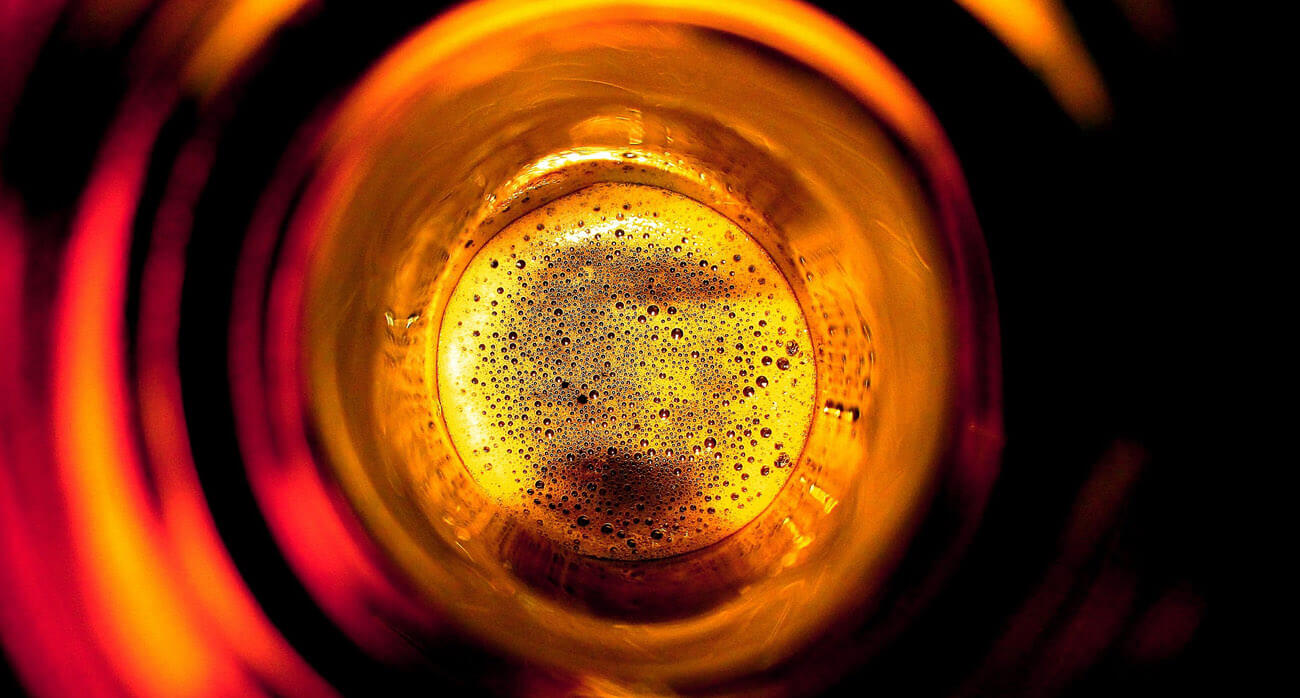
Lie #3 All Beers Skunk Equally
If you are drinking an american lager, you’re most likely not going to get a skunked beer because it has lower hop content. The pale ales and IPAs, on the other hand, are more susceptible to skunking. Every beer brewed in the U.S. has hops, however the more hops the more chance for reaction.

Lie #4 All Bottles are Created Equally
Some things that you can do to help protect you and your beer from skunking are buying in a keg or a can, they’re basically bullet proofed from skunking. If you buy your beer in bottles, make sure it’s packaged in a dark brown/black bottle. The darker the glass, the better protection it provides your beer!
If your beer is packaged in blue, green or clear glass…it’s already too late. Those colors of glass basically give you zero protection from light. So how do they make money on the beer if it’s skunked? They tell you to mask it! They advise you to add lime to it. Drink right from the bottle, giving you basically no chance to smell the skunking. You will smell the citrusy scent of the lime, and it alters the taste just enough so you don’t taste it. Meanwhile they still get to package the beer how they like it. With beers like that, marketing is key. They want you to see their bottle and know what it is without seeing the label. My advice to you is this, be careful of what beer you buy and how you store it. Store it in a cool dark area.
Will Skunked Beer Still Get You Drunk?
The short answer is yes, skunked beer can still get you drunk. The skunky odor that assaults your senses when you crack open a tainted brew doesn’t actually affect the alcohol content. It’s the result of a chemical reaction that occurs when ultraviolet (UV) light interacts with certain compounds in the beer, but it doesn’t alter the alcohol potency.
What Does It Mean When Beer Smells Like Skunk?
When your beer smells like a skunk, it’s a sign that it has been lightstruck. Lightstruck beer doesn’t necessarily mean it’s gone bad, but it does mean that the taste and aroma will be negatively affected. If all your after is a buzz, you’ll be fine. If you’re after a more nuanced flavor and aroma experienced, your skunked beer should go in the drain.
How Can You Tell If Beer Is Bad?
Aside from the obvious skunky smell, other signs of bad beer include a noticeable change in color, a flat or off-flavor, or a funky, sour taste. If any of these characteristics are present, it’s best to avoid drinking the beer. Another tell tale sign of poor storage is uncontrollable fizzing. If you crack open a can or bottle, and it begins gushing foam out of the top faster than you can drink it or pour it, this is a tell tale sign of poor storage. Inconsistent temperatures are the cause of this, especially warmer temps.
Why Is Heineken Always Skunked?
Heineken, with its distinctive green bottles, has often been associated with skunked beer. The clear glass allows UV light to penetrate more easily than brown glass, increasing the likelihood of the beer becoming lightstruck. To counter this, Heineken has introduced “skunk-resistant” packaging, but the risk still exists.
Why Is Corona So Skunky?
Corona, another beer frequently linked to skunkiness, also suffers from its clear bottle packaging. The beer’s exposure to light during shipping and storage can lead to that signature skunky aroma. Choosing a version of Corona in a can or pouring it into an opaque glass can help mitigate this issue. Of course, canned Corona is better protected because the light can’t enter the can!
At What Temperature Does Beer Get Skunked?
The skunking process is accelerated at higher temperatures. Beers stored above 55°F (13°C) are more susceptible to becoming skunked, especially if exposed to direct sunlight. It’s advisable to store your beer in a cool, dark place to prevent skunking.
Can Bottled Beer Get Skunked?
Yes, bottled beer can definitely get skunked. While cans provide better protection against light exposure, bottled beers are still vulnerable, particularly those in clear or green bottles. Opt for beers stored in brown bottles or cans for better preservation.
Is It Safe to Drink Beer That Smells Like Skunk?
Despite the unpleasant aroma, skunked beer is generally safe to drink. The compounds responsible for the skunky smell are not harmful. However, the altered taste might not provide the enjoyable beer-drinking experience you’re looking for.
Does Beer Go Bad If Stored at Room Temperature?
Beer is best stored in a cool, dark place. Although skunking is specifically due to light, UV rays, and their interactions with hop compounds, temperatures can affect how beer flavors change over time. Remember, beer is a living thing. You behave differently in a 104° afternoon than you do a 74° morning. Higher temperatures can accelerate the aging process and increase the likelihood of skunking in beer. While beer stored at room temperature won’t necessarily go bad immediately, it may lose its desired flavors more quickly. If it’s in a keg or a can, the light can’t get to it, so skunking won’t happen, but off flavors can develop simply from the temps.
How Long Does It Take for Beer to Go Skunk?
The speed at which beer goes skunked depends on various factors, including the intensity of light exposure and the beer’s hop content. In some cases, a beer could become skunked in just a matter of minutes if exposed to strong UV light.
Conclusion
Some things that you can do to help protect you and your beer from skunking are buying in a keg or a can, they’re basically bullet proofed from skunking. If you buy your beer in bottles, make sure it’s packaged in a dark brown/black bottle. The darker the glass, the better protection it provides your beer!
Also if you buy it from a liquor store, they’ll be more likely to store it properly. Here are some great bottle shops in Houston. That gas station might have beer on the shelf for months, just sitting in that light all day. Pro tip, don’t always take the word of someone else as the end all be all. While this is most common for Euro Lagers and Mexican Lagers, it can happen with almost any beer.
Y’all know something we forgot to mention about skunked beer? Let us know!
Beers to you Houston!


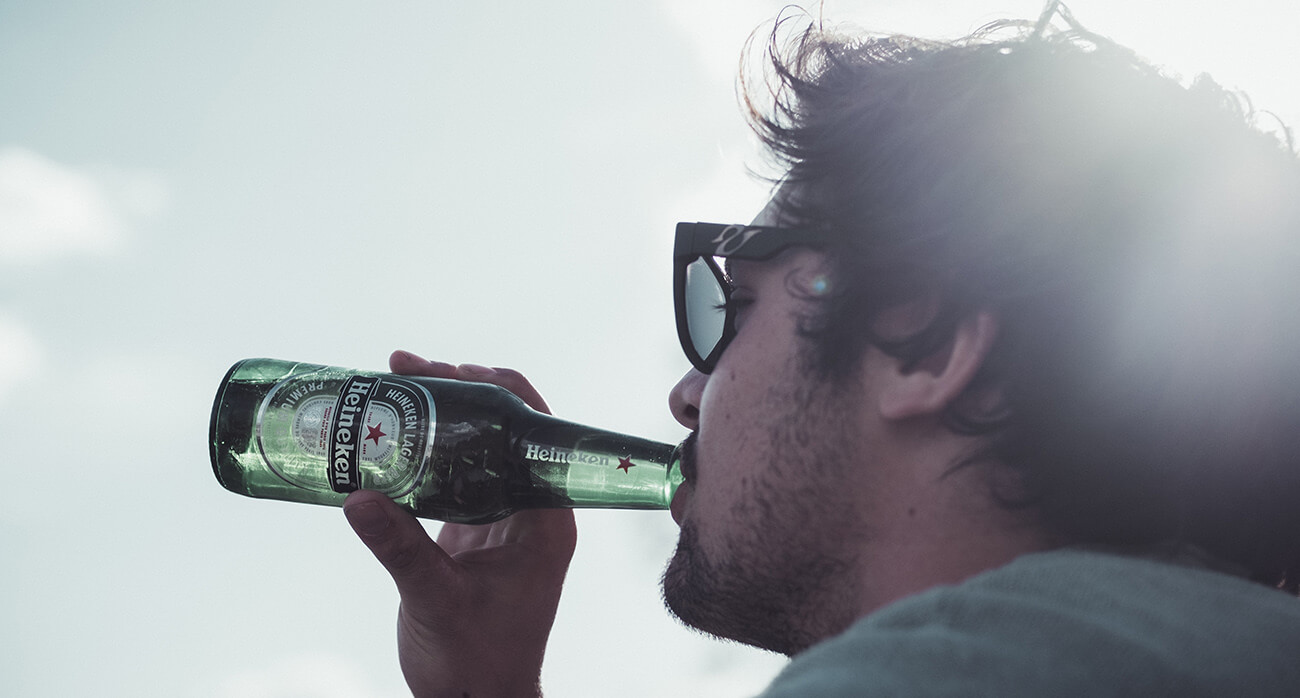
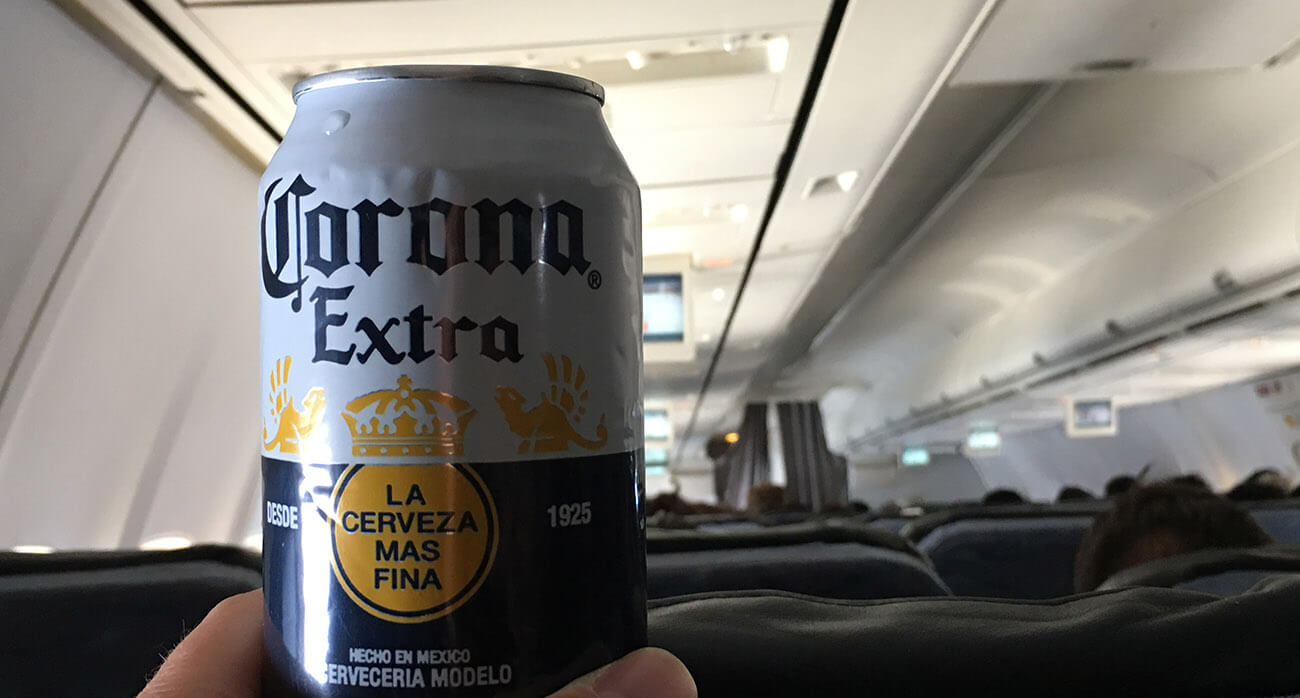
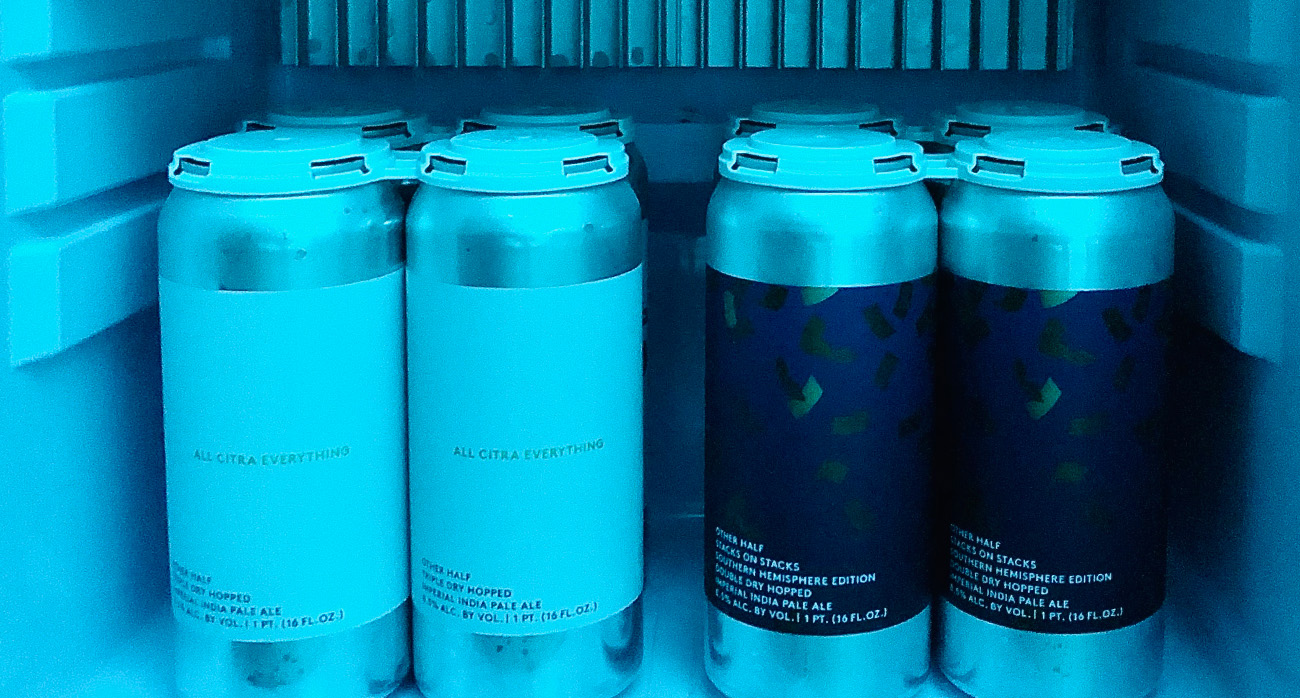

Jennifer Fox-Colwell
Posted at 07:59h, 02 JulySo… beer in cans can’t be skunked, right? No light gets in, so no possibility of skunking. At least that the information I’m looking for. Helpful article. Thanks!
Tony D
Posted at 09:58h, 02 JulyHey Jennifer! Skunking happens because of light, therefore beer in kegs, cans, and totally opaque bottles are immune. However, heating/cooling can affect flavors.
Sebentrees
Posted at 12:18h, 28 DecemberMiller Products won’t skunk. They use a hop extract to keep this from happening. Not that we would drink that shit. Lol just an interesting side
Note
Tony D
Posted at 22:25h, 02 Januaryhahahahah GOLD. I’ve read about this before on more than one occasion, but I don’t know if I trust any of the sources. So much BS is spread about BMC that it’s hard to hear through the noise. You got a reliable source?
Kendall sorensen
Posted at 21:50h, 03 MarchSo what you’re saying is that the premium beers of Europe, Tuborg and, Carslberg from Denmark, Staropramen and Urquell from CZ, Spaten and Hofbrau from Germany and other labels too numerous to list all almost universally bottled in green glass, are all “skunky” beers? And that the brewers are so wrapped up in the image of their beers in green bottles that they are willing to let their beers get ruined on the way to markets?
Seriously?
Anthony Gorrity
Posted at 13:37h, 17 MarchHey Kendall,
Nope. That’s a bit of a stretch. We’re just reporting on the nature of packaging, how light affects beer, and how you’ve been lied to about it by coy advertising campaigns and urban myth. If everything were as black and white as you mentioned, there’d be no craft beer to begin with.
The point here is cans don’t skunk. Bottles do.
The amount of UV penetration is dependent on many factors including the color of the glass, weather, storage, and angle at which the UV penetrates. UV penetration in HDPE and LDPE (high-density and low-density polyethylene, respectively) is typically measured only when the UV is penetrating at a 90-degree angle, or high-noon depending on where the testing is occurring on the globe. I can’t confirm how it’s tested for glass, beer, and this article, but you can see that it’s not as simple as “bottled beer = skunked beer.”
The handling of the glass from place to place and the additional packaging (higher cardboard 6-packs for bottles of fine beer) helps prevent some of the UV penetration as well.
My apologies for not getting back to you sooner. Hopefully, this clears up your question! Cheers, man!
Jared Plata
Posted at 02:33h, 25 JanuaryI bought a 6 pack of lagunitas Maximus. When I was pulled it it out of the cooler it dropped due to a ripped handle. Only one actually broke. The seller offered it to me a week later at a discounted price. They remaining ones all fizzed and idk if they took them outside to stop leaking but they all tasted pretty skunky to me. Idk if it was the drop or if they may have put them outside but it was not good
Pingback:Thank You Houston - Beer Chronicle Houston - Sharing Houston Beer
Posted at 22:48h, 07 September[…] they’re so often viewed is proof that we’re doing something right. (Our posts about skunked beer, proper glassware, and our list of all the breweries are top 20 all […]
Tim Boubion
Posted at 16:22h, 11 FebruaryI bought a 12 pack cans of a local brew at a grocery outlet and for sure those beers were skunky. Must’ve sat in the heat somewhere along their travels.
I still drank them…
Pingback:How Long Do Barrel-aged Beers Last? – Pietroortolani
Posted at 12:03h, 03 March[…] Skunked beer is what happens when your beer’s improperly stored. It gets an unappealing, musty flavor. It’s bro science 101: You can’t take a beer from iced down to warm and back without skunking it, or so we’ve been told. via […]
Pingback:Lakewood Brewing Temptress Stout comes to HOU | Beer Chronicle
Posted at 09:08h, 02 July[…] Ranging from the picky to the open-minded, Lakewood makes a beer in so many styles that you’re guaranteed to find one to satiate your palate. But, since it’s in bottles, be careful on your way home not to expose them to the sunlight. He… […]
Pingback:Whole Foods Market Brewing Wholistic Hazy IPA Batch 2 Nectaron - Houston Beer
Posted at 09:21h, 02 July[…] This visit gave me a chance to briefly meet Chris, grab two more batches of Wholistic Hazy IPA, some Haze of Our Lives, and a little bonus bottle of Side Eye Sour – their Strong Belgian Ale and aged it for 14 months in dessert wine barrels with Brettanomyces and Pediococcus. Barrels were provided by William Chris Vineyards. I made sure to put the bottle on the bottom of the bag and stacked the cans around it to prevent light from hitting it since light penetrating bottles is bad news. Here are 4 lies you may have been told about skunked beer, and some of them has to do with bottles. […]
Pingback:Best Bottle Shops in Houston - Beer Chronicle, We <3 Houston Beer
Posted at 16:46h, 24 September[…] Here’s a somewhat random end-note, but I wonder if we’ll ever stop calling them bottle shops since most beer is in cans now. If you’ve ever wondered why most breweries are switching to cans, there are many reasons, but one is quality. Cans protect beer better. Here are 4 lies you may have been told about skunked beer, and some of them has to do with bottles. […]
Pingback:Will skunked beer make you sick? Explained by FAQGuide
Posted at 21:48h, 16 October[…] Source: https://www.beerchronicle.com/what-is-skunked-beer/ […]
Pingback:The Beer Chilling Myth That Has No Actual Basis In Reality - California Elites
Posted at 10:19h, 22 December[…] Beer Chronicle says that skunking is a term used to describe beer that has been improperly stored. Because of this, it takes on a musty and undesirable smell and taste that resembles the foul smell most often associated with skunks. Craig Stein Beverage says that when hops are added to the beer, they release iso-alpha acids which can break down to release sulfurous compounds. […]